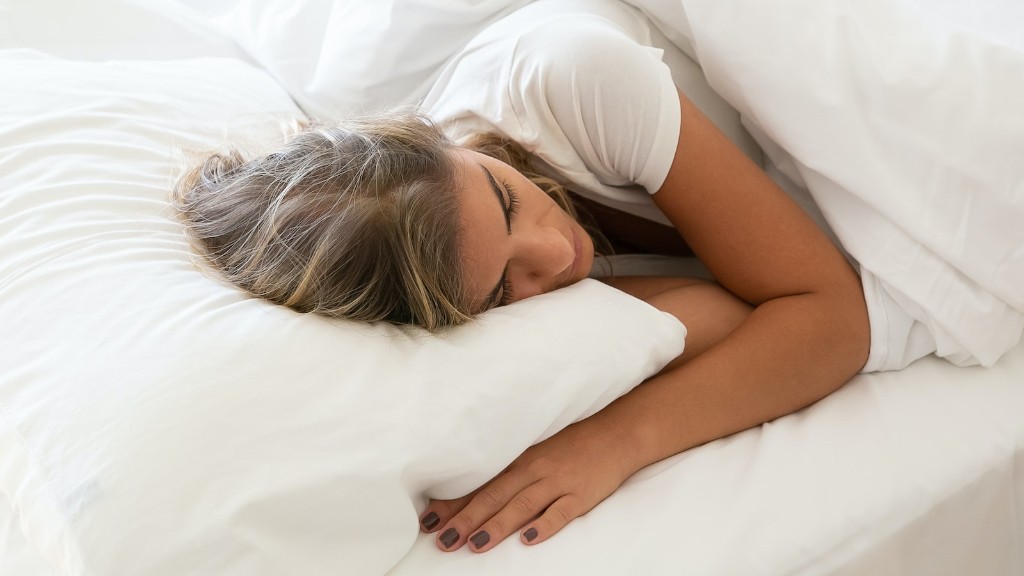There is a lot of debate surrounding the topic of whether or not dreams can cause panic attacks. Some people believe that dreams can be a trigger for panic attacks, while others believe that they are simply a manifestation of anxiety. However, there is some evidence to suggest that dreams may indeed be a cause of panic attacks. One study found that people who suffer from panic attacks are more likely to have nightmares than those who do not suffer from panic attacks. Additionally, people who have panic disorder are more likely to report having dreams that are frightening or disturbing.
There is no definitive answer to this question as dreams are highly personal and subjective experiences that vary greatly from person to person. However, some research suggests that certain types of dreams can increase the risk of experiencing a panic attack. For example, dreams that are particularly vivid, intense, or anxiety-provoking may trigger panic symptoms. Additionally, people who suffer from conditions like anxiety or post-traumatic stress disorder (PTSD) may be more prone to having panic attacks after experiencing dream-related distress.
What causes panic attacks in sleep?
There are many potential underlying factors that can contribute to the development of panic disorder. These may include genetics, stress, and certain changes in the way parts of your brain work. In some cases, an underlying condition such as a sleep disorder or thyroid problem can cause panic-like signs and symptoms. It is important to work with a healthcare professional to determine the cause of your panic disorder so that appropriate treatment can be initiated.
A nocturnal panic attack can be a very frightening experience. You wake up suddenly feeling fear and anxiety, and your body may respond with a racing heart, sweating, and difficulty breathing. It is important to remember that this is a normal response to a perceived threat, and it is not dangerous. If you experience a nocturnal panic attack, try to stay calm and focus on your breathing. You may also find it helpful to close your eyes and imagine a peaceful scene.
Can vivid dreams cause anxiety
If you’re having persistent, vivid dreams that are causing anxiety or depression symptoms, it’s important to seek help from a mental health professional. It may be that you’re subconsciously avoiding sleep because you fear having another bad dream, but this can only make the problem worse. In therapy, you can learn how to deal with the emotions your dreams are bringing up, and you can also work on techniques to reduce the intensity or frequency of your dreams.
There is no one-size-fits-all answer to this question, as everyone experiences anxiety and panic attacks differently and what works for one person may not work for another. However, some general tips that may help to prevent panic attacks include doing breathing exercises every day, getting regular exercise, following a diet that is low in added sugar, and avoiding caffeine, smoking, and alcohol. If anxiety is a persistent problem, seek counseling and other professional help.
What is cardiac panic?
If you experience these symptoms, it is important to seek medical help immediately, as they could be indicative of a heart attack. However, if you have a history of panic disorder, it is important to inform your medical team, as the symptoms can be mistaken for a heart attack. In either case, it is important to get to a hospital as soon as possible for treatment.
Sleeping on your left side may help to ease symptoms of certain health conditions. This can help to soothe feelings of anxiety.
Can you tell when a panic attack is coming?
A panic attack is a sudden episode of intense fear that usually occurs without warning. Each attack can last anywhere from a few minutes to several hours. These episodes can often feel just as severe as a heart attack or other major medical event.
Symptoms of a panic attack may include:
Sense of impending doom or danger
Fear of loss of control or death
Rapid, pounding heart rate
Sweating
Trembling or shaking
Shortness of breath
Sense of choking
Chest pain
Nausea or abdominal pain
Feeling dizzy, lightheaded, or faint
Detachment from reality (derealization)
Fear of losing control or going crazy
Numbness or tingling sensations
Chills or hot flashes
There are a few things you can do to try and stop anxiety attacks at night:
-Focus on your breath and try to slow down
-Practice a calming activity
-Think of positive images
-Focus on your senses
-Talk to someone
-Consider herbal remedies
What is Somniphobia
For people with somniphobia, the idea of sleeping is incredibly frightening. They may have nightmares about what could happen while they’re asleep, like dying or experiencing sleep paralysis. Often, people with somniphobia will try to stay up for as long as possible to avoid going to sleep. If you’re struggling with somniphobia, know that you’re not alone. There are many other people who feel the same way. There are also treatments that can help, so don’t hesitate to reach out for help.
Anxiety dreams are more likely to occur during periods of stress or anxiety, and usually involve themes of incomplete tasks, failure, or being pursued by another person or entity.
What is Oneirophobia?
Oneirophobia is the fear of dreams. It is an irrational fear that can cause great anxiety and distress. People with oneirophobia may avoid activities that could trigger a dream, such as sleeping or going to bed. They may also avoid activities that may remind them of a dream, such as watching television or movies. Oneirophobia can have a negative impact on a person’s quality of life and may cause them to miss out on important aspects of life.
Selective serotonin reuptake inhibitors (SSRIs) are a class of antidepressants that are generally safe and have a low risk of serious side effects. SSRIs are typically recommended as the first choice of medications to treat panic attacks.
Will I live with panic attacks forever
While there is no cure for panic disorder, it can be effectively managed to the point that it no longer significantly impairs your life. There are a number of techniques and medications that can help to control and reduce the symptoms of panic disorder, giving you a better quality of life. If you are suffering from panic disorder, talk to your doctor or mental health professional to find the best course of treatment for you.
While panic attacks may feel incredibly uncomfortable, it is important to remember that they will not last forever. In most cases, panic attacks will only last around 10 minutes. However, it is important to seek professional help if you are experiencing panic attacks on a regular basis.
What are 2 signs of a panic disorder?
This sounds like anxiety or a panic attack. Symptoms like these can be caused by stress or feeling overwhelmed. If you’re feeling like this, try to take some deep breaths and focus on something calming. You can also try some relaxation techniques like progressive muscle relaxation or mindfulness meditation. If these symptoms are severe or happen often, you should talk to your doctor to see if you have an anxiety disorder.
When you experience a panic attack, your body is essentially in “fight or flight” mode. This means that your body is trying to take in more oxygen, which results in quickened breathing. Additionally, your body releases hormones like adrenaline, which causes your heart to beat faster and your muscles to tense up.
Do panic attacks strain your heart
When you have a panic attack, your body goes into fight-or-flight mode. This means that your heart rate and blood pressure increase, and your breathing becomes shallow and rapid. This can lead to coronary artery spasm, which is a narrowing of the arteries that supply blood to your heart. This can cause myocardial ischemia, or a lack of oxygen to the heart muscle, which can lead to cardiac chest pain.
It’s important to be mindful when speaking to someone who is experiencing a panic attack. Ridiculing or even questioning the person can make things more acute. Even making casual observations can be misperceived by the person panicking. It’s best to be respectful and supportive in order to help the person through the attack.
Final Words
There is no scientific evidence to suggest that dreams can cause panic attacks. However, some people may experience panic attacks after having a particularly vivid or intense dream. It is also possible that people with panic disorder are more likely to remember dreams that trigger their anxiety. If you experience panic attacks and are concerned that your dreams may be to blame, talk to a mental health professional for guidance.
There is no clear scientific evidence that dreams can cause panic attacks. However, some people may experience panic attacks after having a particularly vivid or upsetting dream. If you regularly have panic attacks and believe that your dreams may be triggering them, it may be helpful to talk to a therapist or dream analyst to explore these possibilities further.





